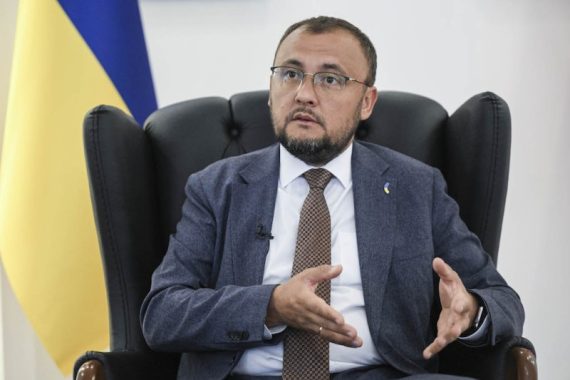T
he Israeli violence in Gaza is affecting arms aid to Ukraine, according to Ukraine’s Ambassador to Turkey, Vasyl Bodnar. The international focus on Gaza has led to a perception that the war in Ukraine has ended, Bodnar stated during a meeting with Turkish journalists at the Ukrainian Embassy in Ankara.
Bodnar disclosed that weapons planned to be sent to Ukraine were redirected to Israel due to the internal political dynamics in Western countries. He identified factors such as the upcoming U.S. presidential election, the attitudes of governments like Hungary and Slovakia, and blockades on Ukrainian trucks at the Polish border imposed by farmers as contributors to the impact on aid.
The ambassador emphasized the need to recognize that the conflict in Ukraine continues and should not be overshadowed by other geopolitical events. He expressed concern about the potential misconception that the war has concluded, calling for sustained international attention and support for Ukraine.
14 million tons of food
In addition to discussing the ongoing conflict, Bodnar provided insights into various aspects of Ukraine’s diplomatic relations and regional initiatives. He addressed the impact of the Black Sea grain deal, defense cooperation with Turkey, and the prospects of the Black Sea grain initiative being revived under appropriate conditions.
Bodnar highlighted the importance of Turkey in the operation of a new shipping corridor created after the Black Sea grain deal’s expiration. He noted that over 500 ships had passed through the corridor since September, transporting more than 14 million tons of food.
Regarding the ongoing Russia-Ukraine war, Bodnar asserted that Russia’s aim is to return to a period reminiscent of the Soviet Union, where it committed what he termed as “war crimes” without facing consequences. He stated that Russia’s invasion of Ukraine was driven by the desire to restore the Slavic population balance, which had been decreasing.
Expanding weapons production capacity
Bodnar made it clear that Ukraine would not engage in any discussions with Russia unless its army is removed from Ukrainian territory. He stressed the potential societal consequences of making peace with Russia, referencing the events of Maidan in 2014.
The ambassador also touched upon Ukraine’s efforts to expand its weapons production capacity, emphasizing the importance of self-sufficiency. He urged other countries to learn from Ukraine’s experience and stressed the ongoing cooperation with Turkey, expressing expectations for the bilateral foreign trade volume to reach $8 billion annually.
Bodnar commended Turkey for its role in mediating between Ukraine and Russia, particularly in the release of Azov Battalion commanders. He acknowledged the ongoing negotiations at the leadership level for a new agreement on prisoner exchange and emphasized the challenges faced by Ukraine in this regard.
The developments discussed by Ambassador Bodnar underscore the complex geopolitical landscape and the interconnectedness of global events, with repercussions extending to various regions.
Source: Anadolu Agency
Recommended





